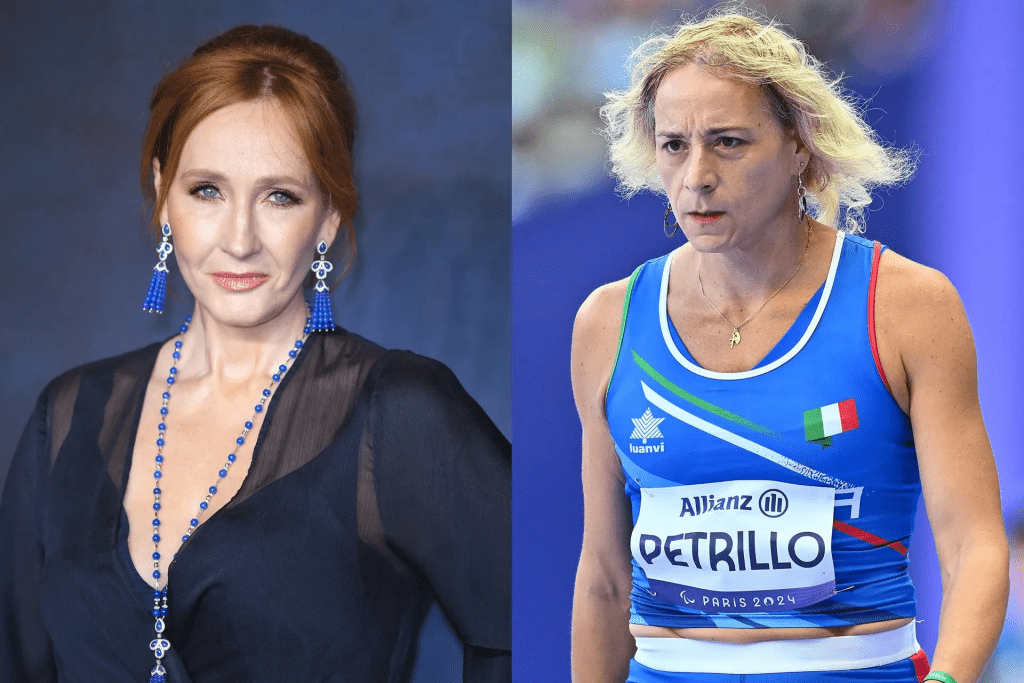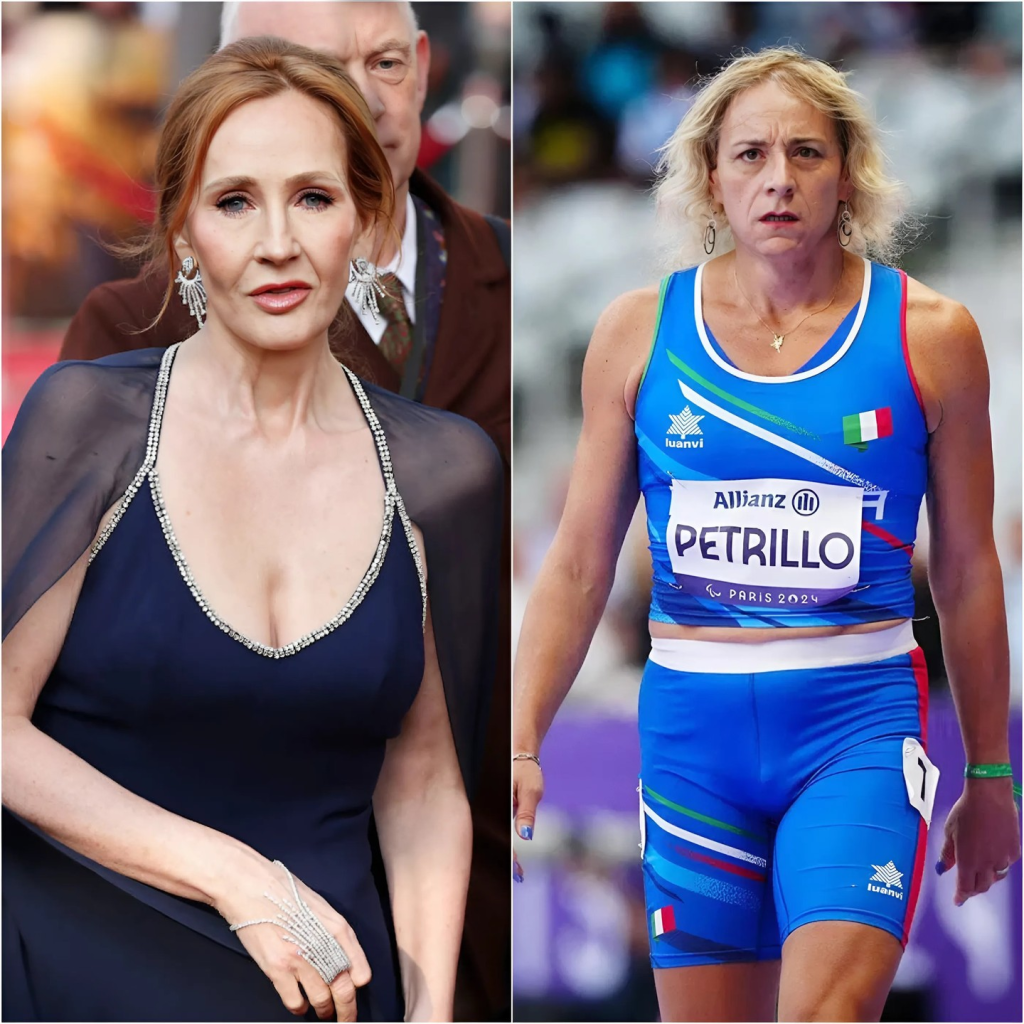In September 2024, J.K. Rowling ignited a heated debate by labeling transgender Paralympian Valentina Petrillo a “cheat” following Petrillo’s qualification for the women’s T12 400m semi-finals at the Paris Paralympic Games. Rowling’s remarks drew widespread attention and sparked discussions on the inclusion of transgender athletes in women’s sports.

Petrillo, a 51-year-old visually impaired sprinter from Italy, transitioned in 2019 and has since competed in women’s categories. Prior to her transition, she secured 11 national titles in men’s T12 events between 2015 and 2018. Her participation in the Paris Paralympics marked a significant milestone as she became one of the first openly transgender athletes to compete at this level.
Rowling’s criticism was delivered via social media, where she sarcastically compared Petrillo’s participation to that of disgraced cyclist Lance Armstrong, suggesting that allowing Petrillo to compete undermines the integrity of women’s sports. She wrote: “Out and proud cheats like Petrillo prove the era of cheat-shaming is over.”

In response, Petrillo expressed disappointment over Rowling’s comments, stating, “I’m flattered that Rowling is talking about me… I was expecting different behaviour from Rowling.” Despite the external criticism, Petrillo highlighted the support she received within the Paralympic community, noting that she felt welcomed by fellow athletes and officials.
The controversy has reignited discussions about the policies governing transgender athletes in competitive sports. While some argue that transgender women may have physiological advantages, others advocate for inclusivity and the recognition of gender identity. The International Paralympic Committee (IPC) currently allows governing bodies to set their own policies regarding transgender athletes. World Para Athletics, for instance, permits individuals legally recognized as women to compete in women’s events.

Former athletes and public figures have also weighed in on the debate. Two-time Olympian marathon runner Mara Yamauchi expressed her concerns, while tennis champion Martina Navratilova retweeted Yamauchi’s comments, adding her agreement. These reactions underscore the polarized views on the inclusion of transgender athletes in women’s sports.
Petrillo’s case is not isolated. Similar debates have arisen in other sports, such as boxing, where Algerian boxer Imane Khelif faced scrutiny over her participation in women’s categories due to elevated testosterone levels. These instances highlight the complexities and sensitivities surrounding gender identity and competitive fairness in sports.

As the discourse continues, sports organizations worldwide are grappling with the challenge of creating policies that balance inclusivity with fair competition. The outcomes of these discussions could have lasting implications for the future of sports and the participation of transgender athletes on the global stage.


